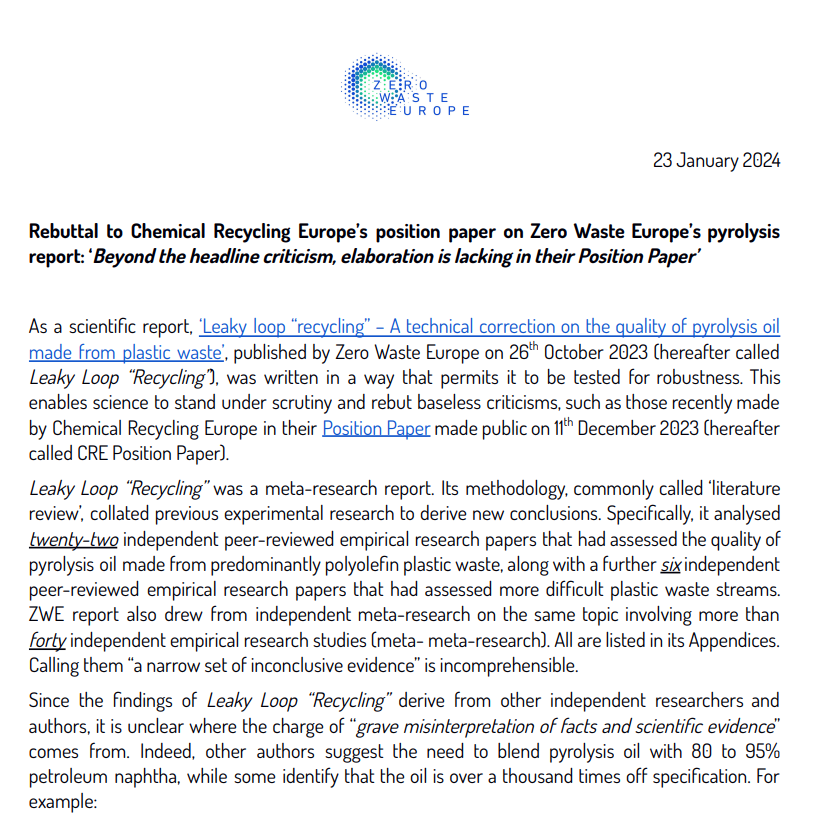
This statement serves as a detailed rebuttal to Chemical Recycling Europe’s (CRE) position paper on Zero Waste Europe’s ‘Leaky Loop “Recycling’ report. The report assesses the viability of pyrolysis, while critically analysing and consolidating findings from twenty-two independent peer-reviewed empirical research papers on the quality of pyrolysis oil derived from plastic waste. This rebuttal challenges CRE’s criticisms, accusing them of lacking robust evidence and providing only rhetorical content in their position paper. The author of ‘Leaky Loop “Recycling’ calls for more substantial evidence from CRE to support their claims and highlights inconsistencies in CRE’s references, particularly in the context of life cycle assessments (LCAs) and operational performance data of pyrolysis processes.
Available in English.
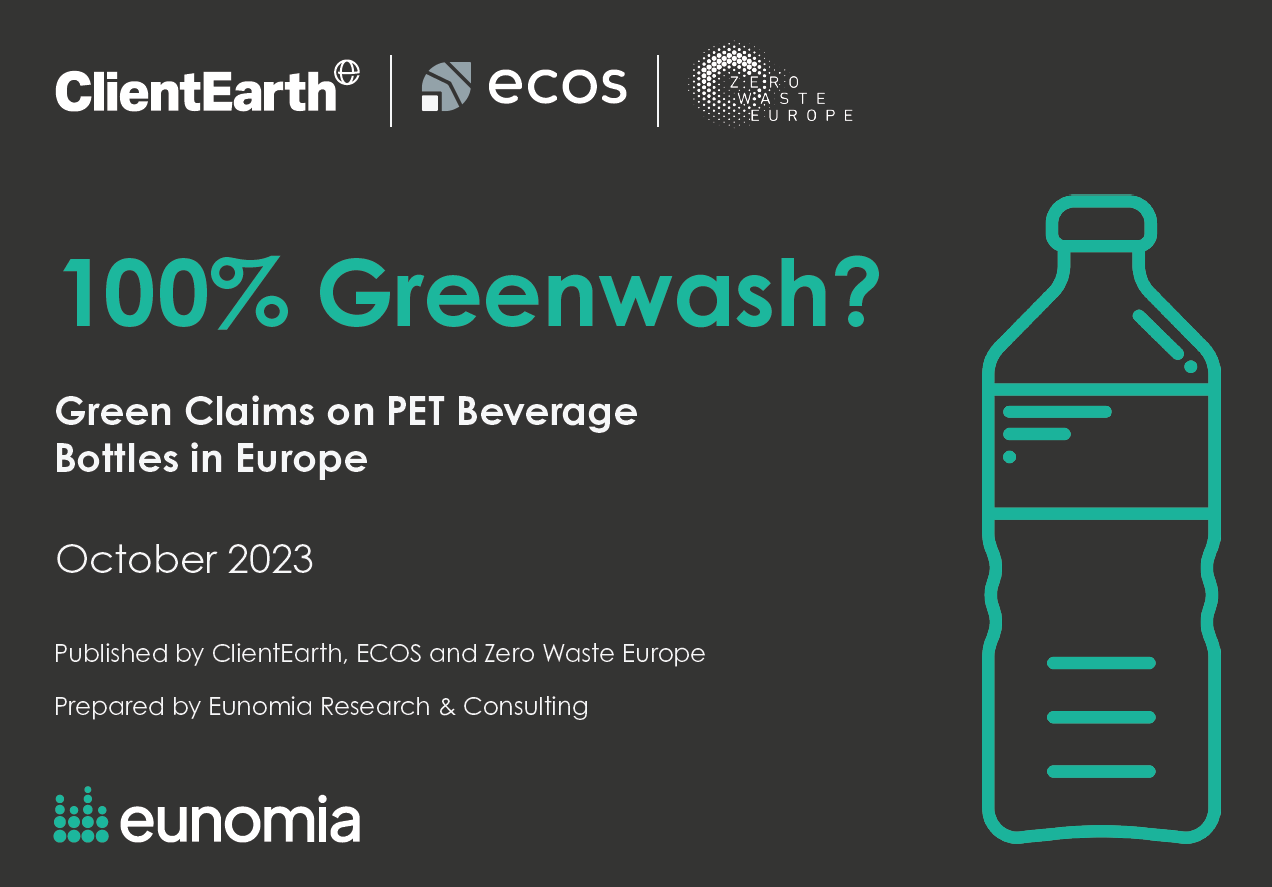
In this report prepared by Eunomia Research & Consulting for ClientEarth, ECOS – Environmental Coalition on Standards, and Zero Waste Europe, we explore the current state of PET-based bottle recycling in Europe, as well as its potential for improvement, alongside analysis of common claims made to consumers on bottle labels relating to recycling. Such claims can give an impression of ‘plastic bottle circularity’ that does not reflect reality.
Available in English.
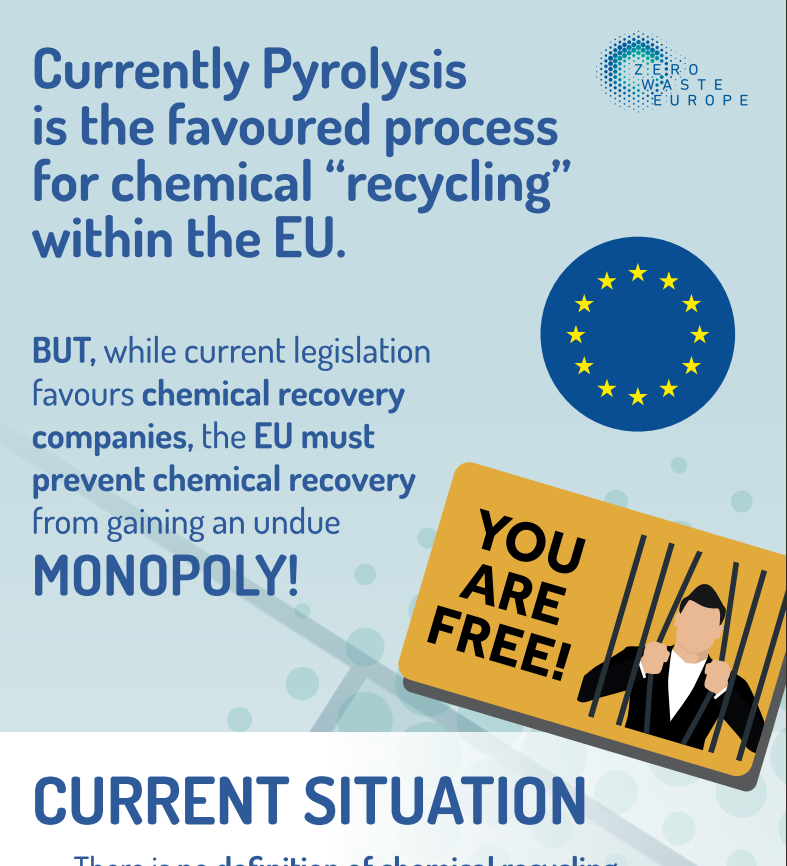
Pyrolysis oil is the favoured process for chemical “recycling” within the EU. However, the rules governing it may result in an unfair monopoly for chemical recycling companies. This infographic makes a compelling case for an EU-wide definition of chemical recycling, and demonstrates how the technology gains an advantage over traditional recycling methods.
Available in English.
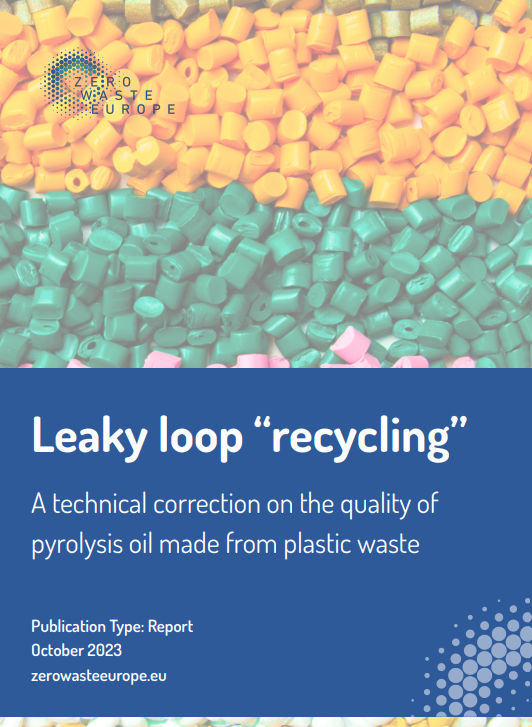
This report examines the widely promoted pyrolysis method in plastic waste management, shedding light on its inherent limitations. Pyrolysis has been hailed as a solution by industry, but this study reveals significant drawbacks. Incompatibility with different plastic types, low oil yield, and contamination issues mean that the resulting pyrolysis oil must be heavily diluted with petroleum-based mixtures, in some cases at a ratio of over 40:1. To be used in recycled plastic production, the oil requires energy-intensive purification steps or substantial dilution with virgin petroleum naphtha, both of which are not aligned with the objectives of the EU Green Deal.
Available in English.
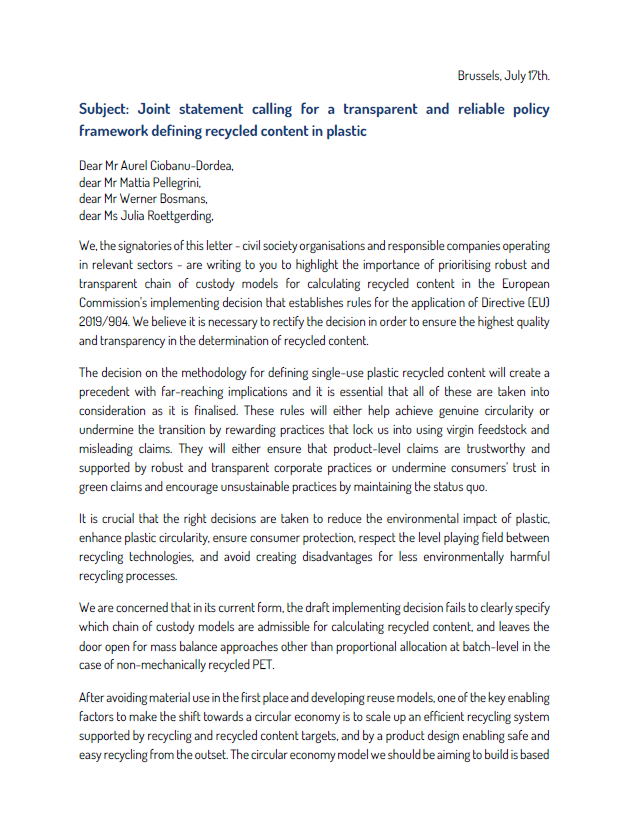
Civil society organisations and responsible companies operating in relevant sectors wrote to the European Commission to urge for the prioritisation of robust and transparent chain of custody models for calculating recycled content in the European Commission’s implementing decision that establishes rules for the application of Directive (EU) 2019/904. This has been done in the belief that it is necessary to rectify the decision in order to ensure the highest quality and transparency in the determination of recycled content.
Available in English
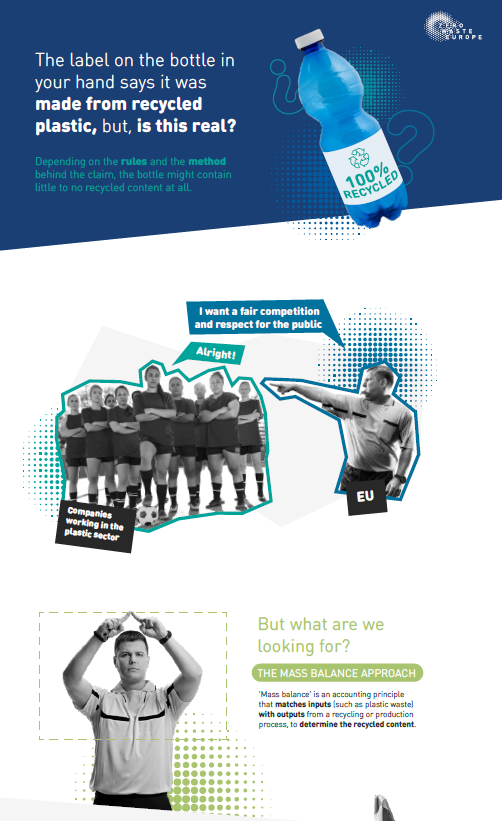
There is a consensus that having recycled content obligations in plastic is key to foster the circularity of this material. However, the way to calculate this content is still a major point of discussion.
This infographic presents the rules that must be put in place to ensure real and concrete circularity of this material, benefitting the environment and preventing greenwashing practices.
Available in English, Estonian, French, and Spanish.
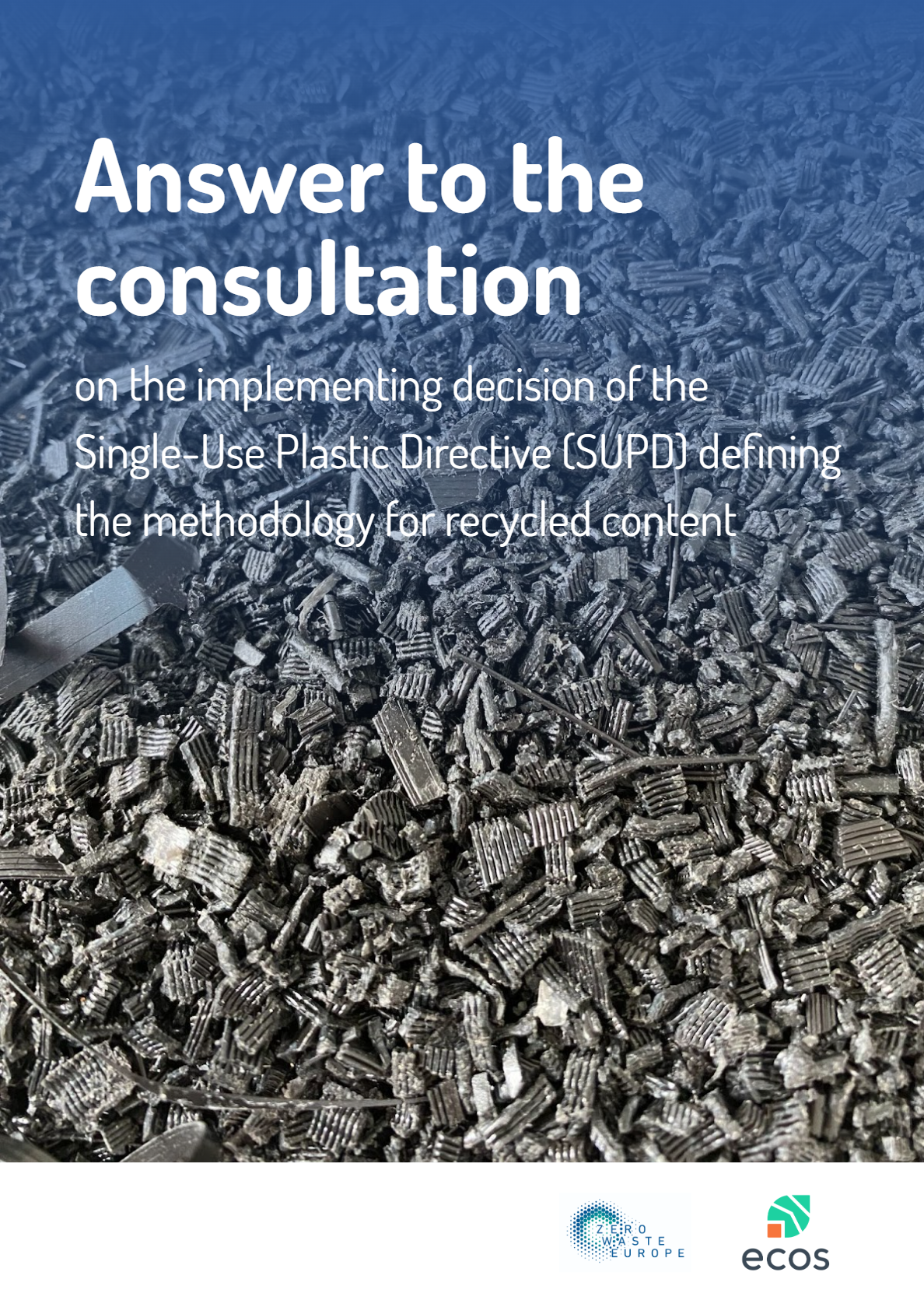
Zero Waste Europe welcomes the opportunity to provide feedback to the EC consultation on the implementing decision defining the methodology for recycled content as part of the Single-Use Plastic Directive (SUPD). Since the adopted methodology will be the first of this type, it will most likely create a precedent for the upcoming legislative pieces introducing recycled content targets for plastic.
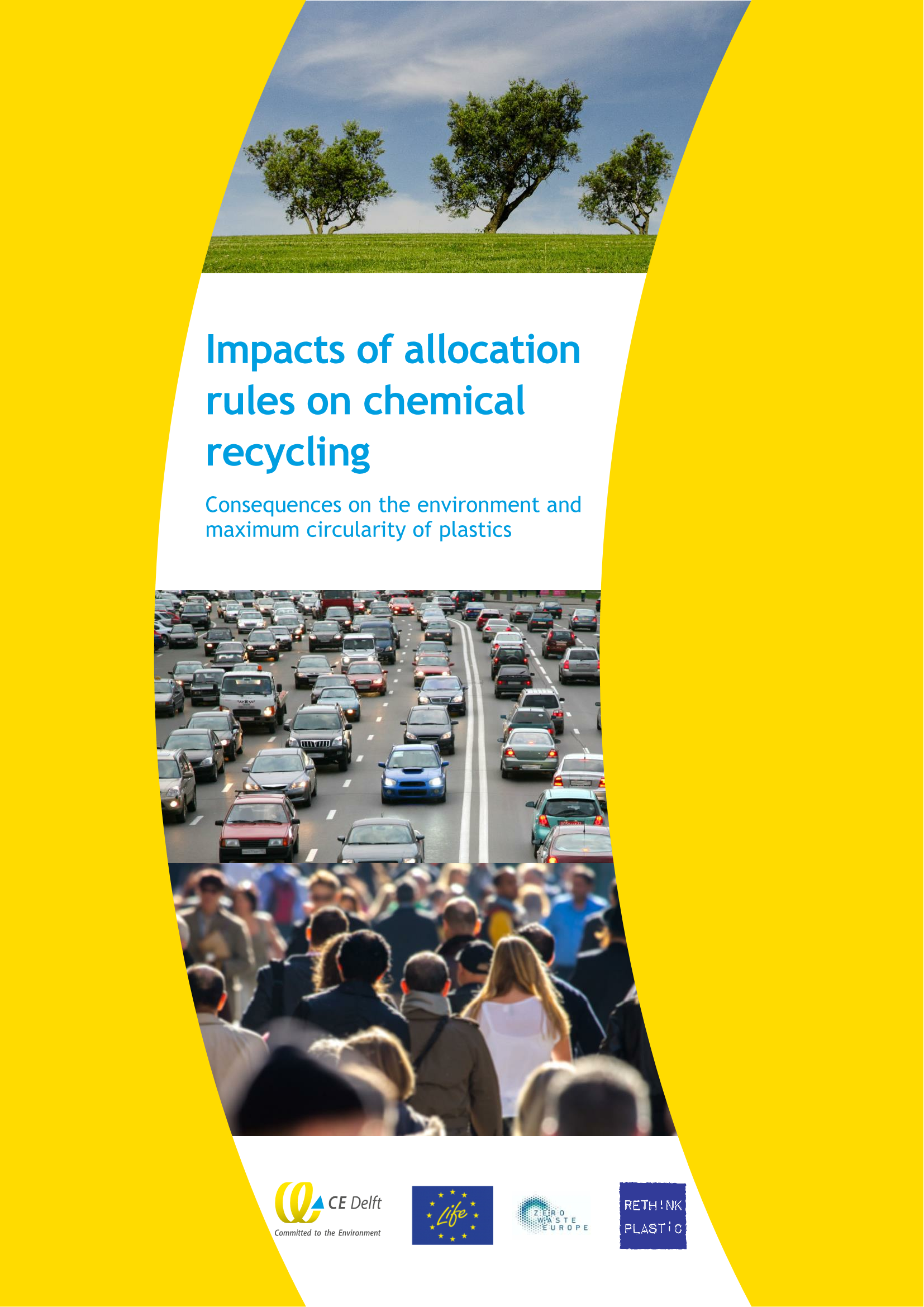
Commissioned to CE Delft by Zero Waste Europe and the Rethink Plastic Alliance, this study assesses the consequences of different approaches to allocating recycled content in plastic. It proves that proportional allocation has the lowest impact on the level-playing field and the largest potential environmental benefits.
Available in English.
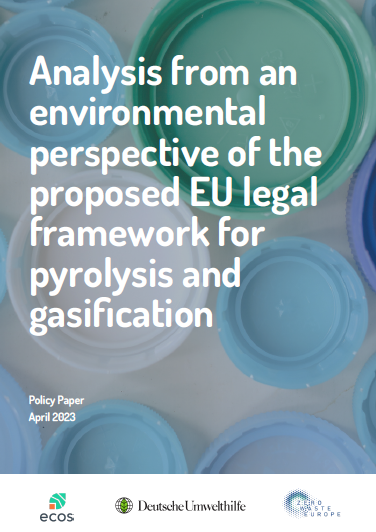
On behalf of the European Commission, the Joint Research Center (JRC) recently published two studies, which intend to provide a basis for a legal framework for chemical recycling.
The scope of this assessment by ECOS, Deutsche Umwelthilfe, and Zero Waste Europe includes techniques performing thermo-chemical decomposition of plastic waste to molecular-level feedstock, with a focus on pyrolysis and gasification of plastic packaging waste. From an environmental point of view, these technologies should be classified as chemical recovery techniques, and can therefore only contribute marginally to reducing impacts from plastic production.
Available in English,
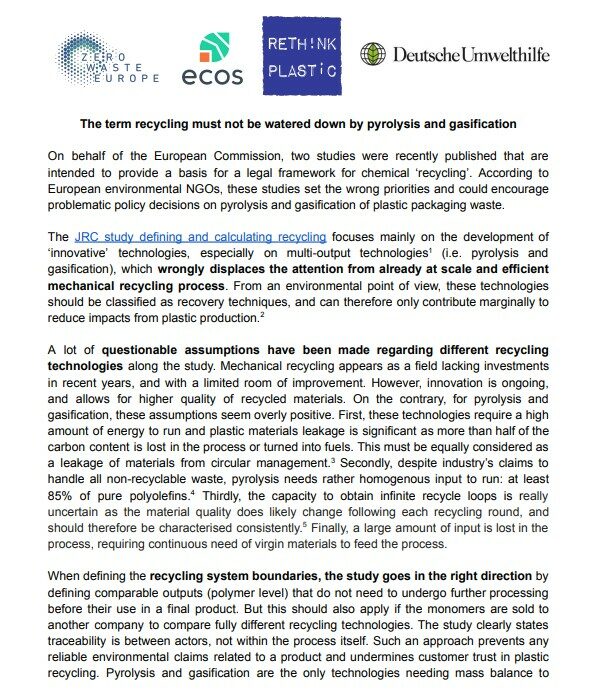
Zero Waste Europe joined RPa, ECOS, and Deutsch Umwelthilfe on a reaction to the Joint Research Center (JRC) studies that are intended to provide a scientific analysis of chemical ‘recycling’. In focusing too much on pyrolysis and gasification, these studies set the wrong pathway for the definition of recycling, which should ensure only efficient technologies are promoted.
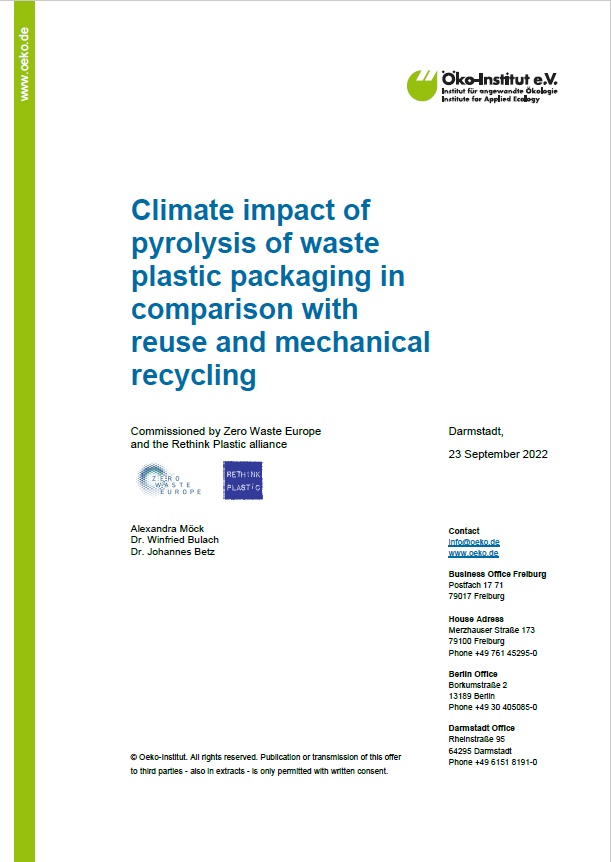
Commissioned by Zero Waste Europe and the Rethink Plastic alliance to the Öko-Institut, this study compares seven scenarios for the future of plastic packaging in the European Union (EU) from a climate perspective, following the projected amounts of recycled plastics needed by 2030.
Available in English.
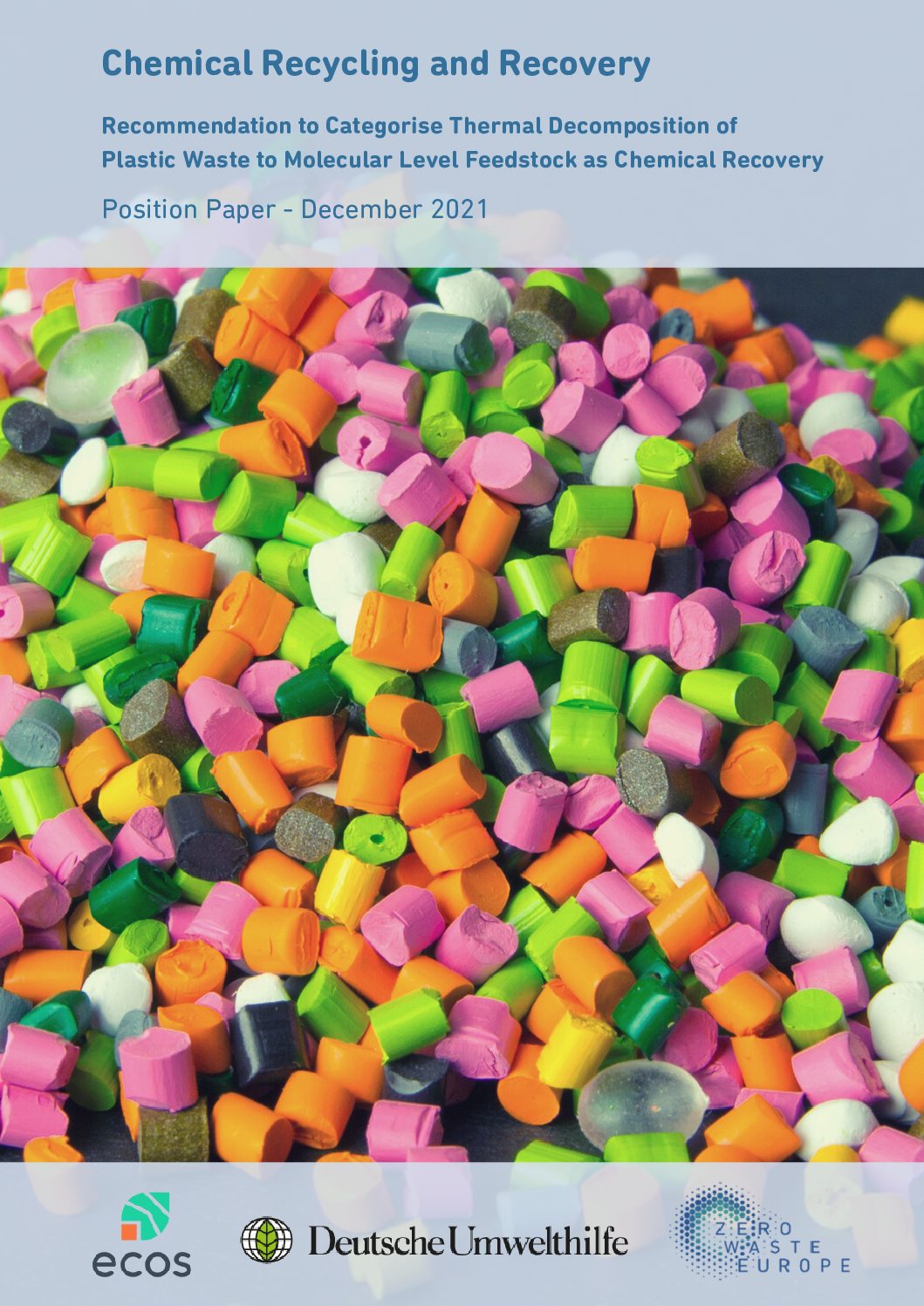
The objective of this briefing is to provide a recommendation for categorising thermal decomposition of plastic waste into feedstock molecules as chemical recovery. This covers mainly pyrolysis and gasification techniques.
The European waste hierarchy for a circular economy must be operationalised to favour reduction, reuse, and, as a last resort, recycling. It is, thus, essential to distinguish plastic waste recycling operations from recovery techniques. As such, pre-treatment of plastic waste into feedstock molecule shall be classified as chemical recovery and not chemical recycling.
Available in English.
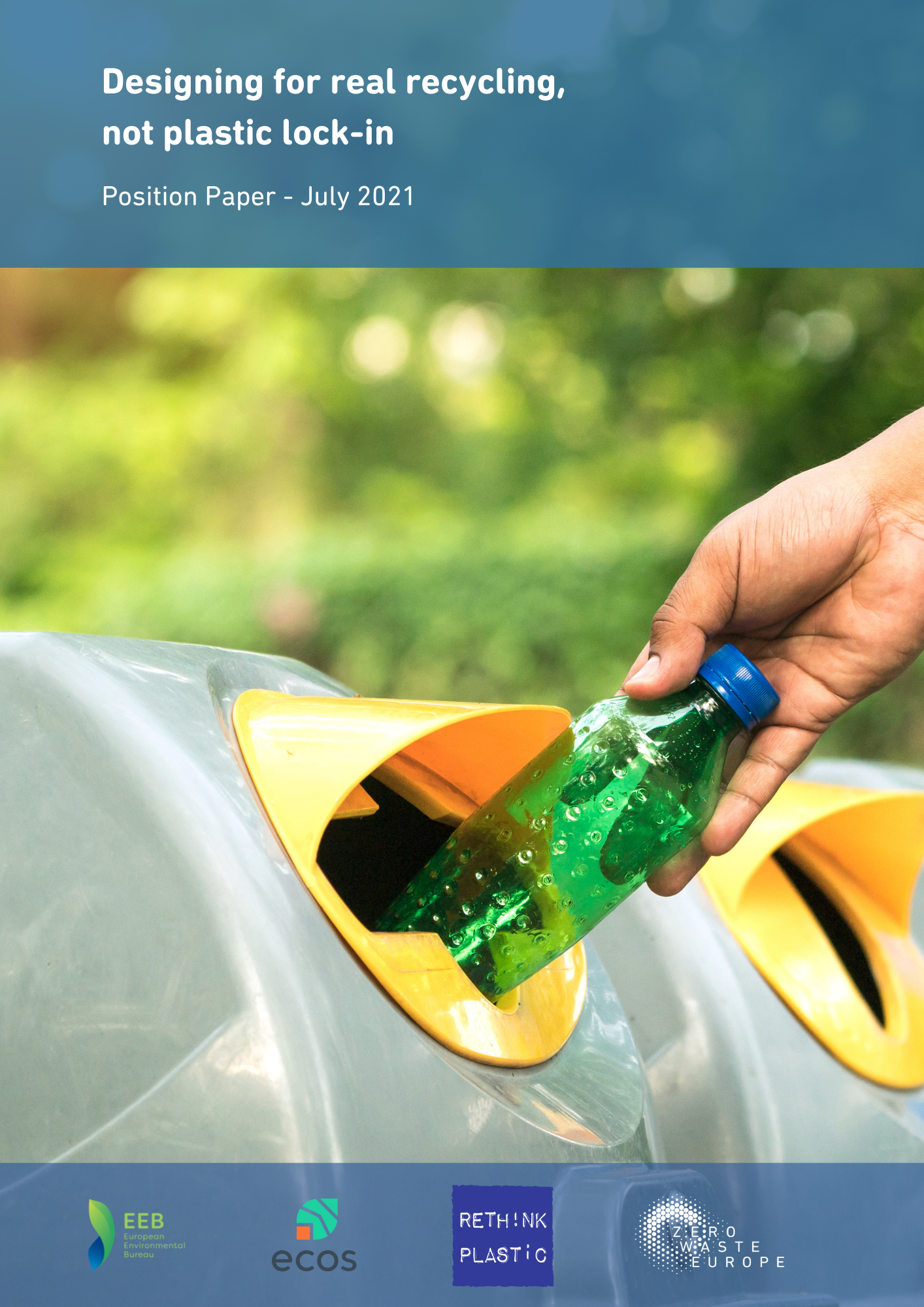
Most plastic packaging today is not recycled nor recyclable. Designing for chemical recycling endangers the actual recyclability of plastics and prevents efforts to phase out hard-to-recycle plastics. Products must be designed using materials that can be treated through sustainable, efficient, low-carbon operations.
This position paper by Zero Waste Europe, ECOS and Rethink Plastic Alliance provides recommendations to prevent plastic lock-in.
Available in English.
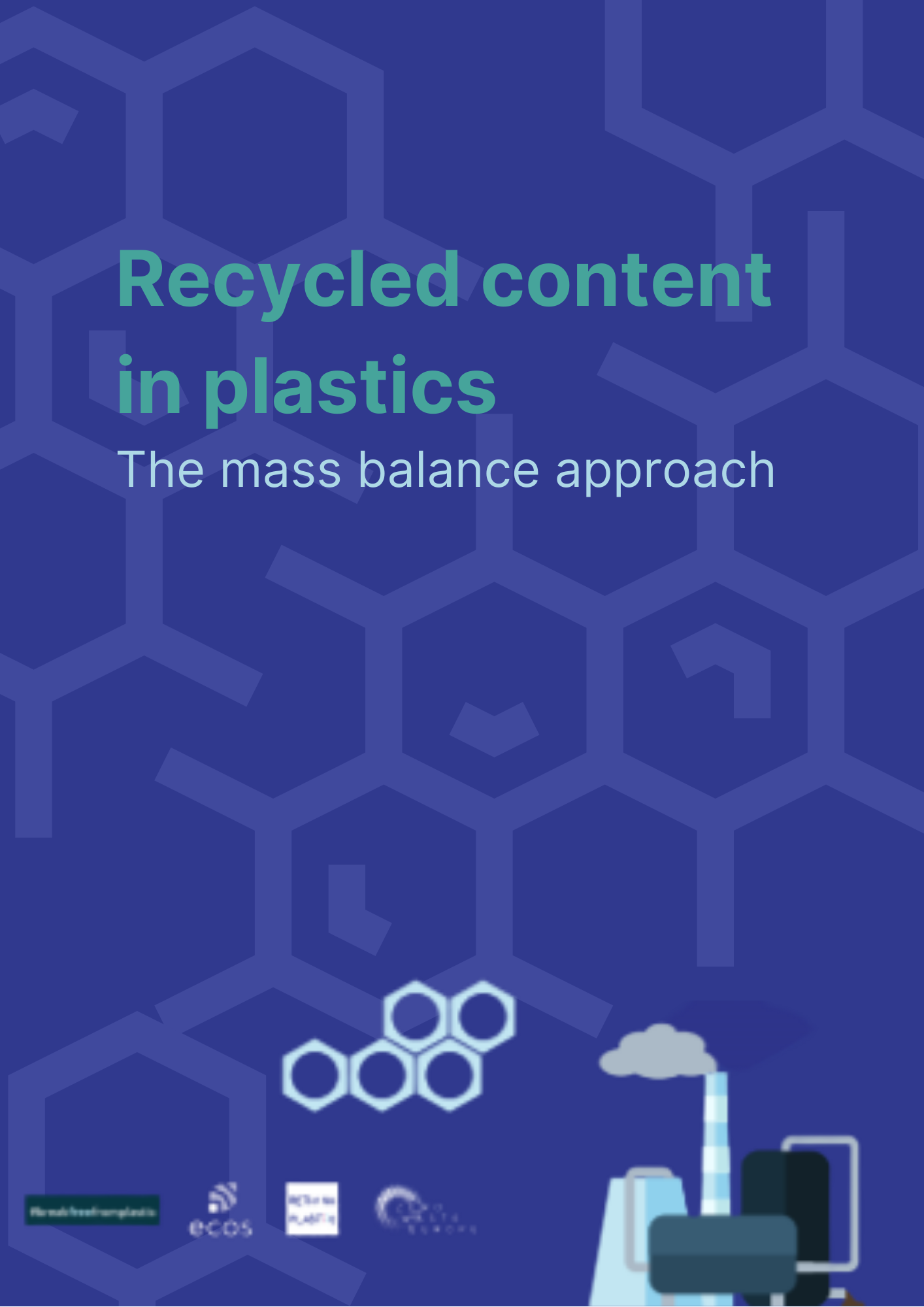
If the label on the bottle in your hand said it was made from recycled plastic, would you believe it? Depending on the method behind the claim, the bottle might contain little to no recycled content at all.
This booklet presents infographic renditions of the recommendations from the “Determining recycled content with the ‘mass balance approach’ – 10 recommendations for development of methods and standards” position paper, originally published on January 2021.
Available in English
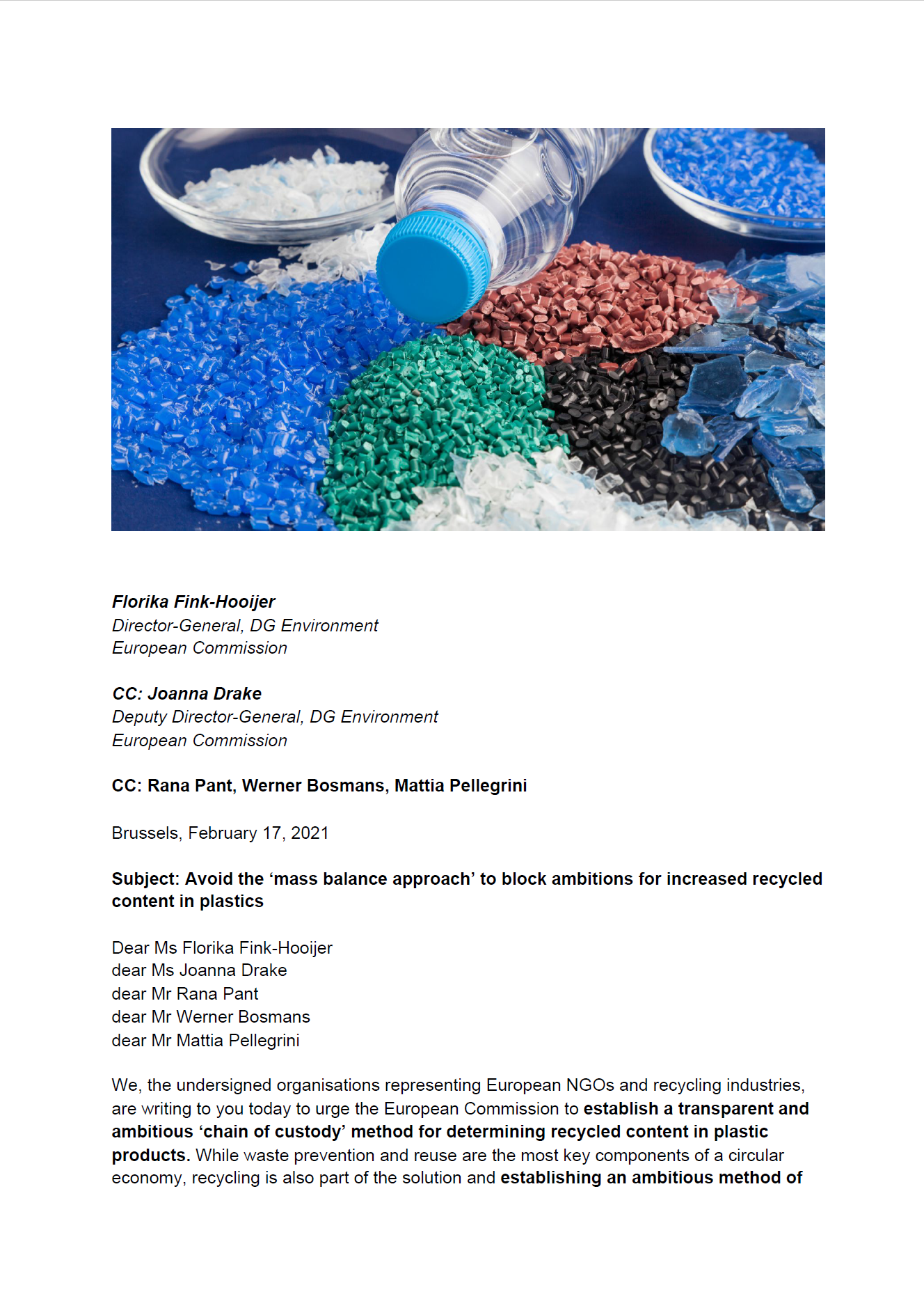
The undersigned organisations representing European NGOs and recycling industries are writing today to urge the European Commission to establish a transparent and ambitious ‘chain of custody’ method for determining recycled content in plastic products.
Available in English
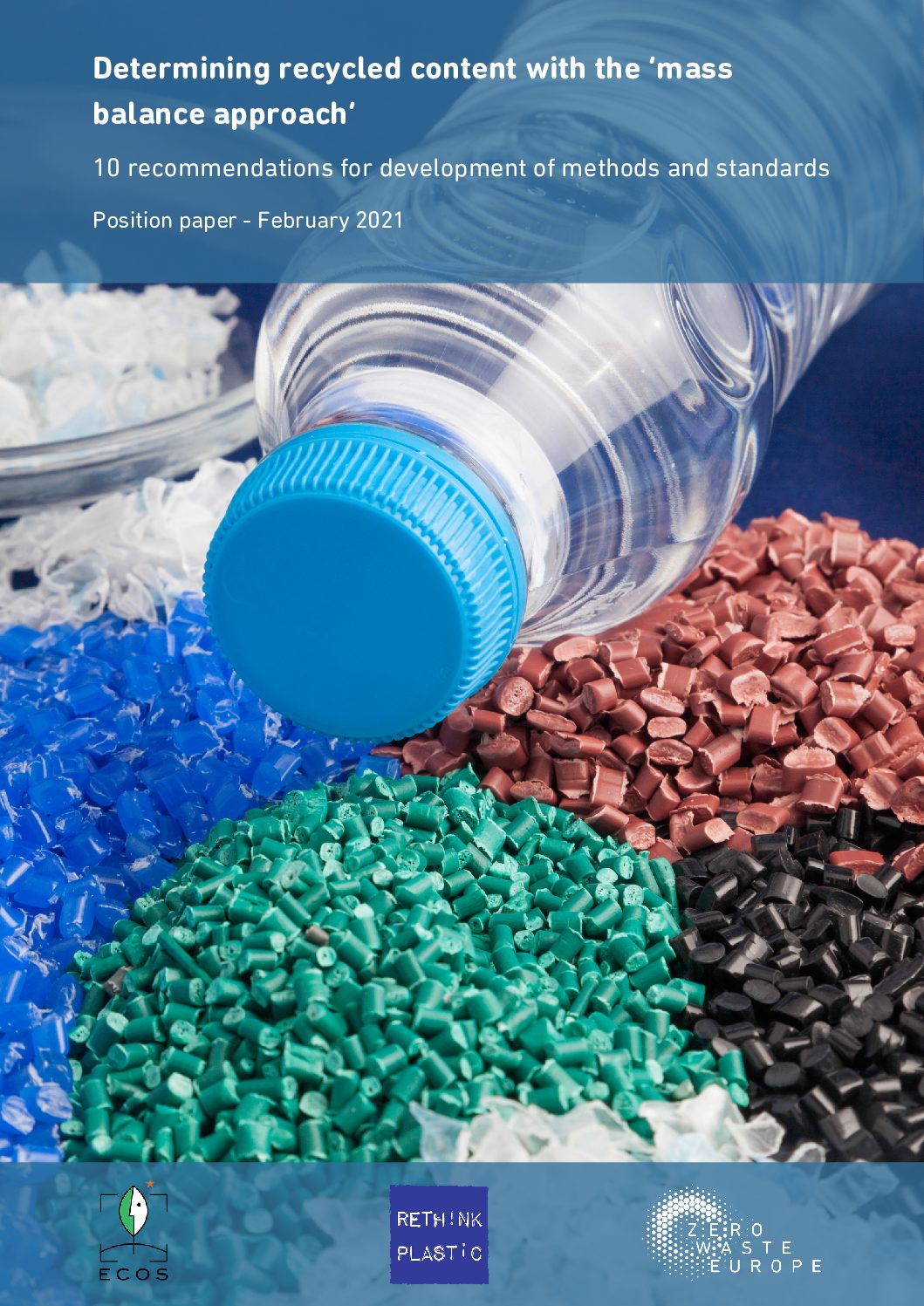
If the label on the bottle in your hand said it was made from recycled plastic, would you believe it? Depending on the method behind the claim, the bottle might contain little to no recycled content at all.
This position paper highlights recommendations to ensure that the methodologies for determining recycled content are developed in a manner which contributes to a circular economy.
Available in English
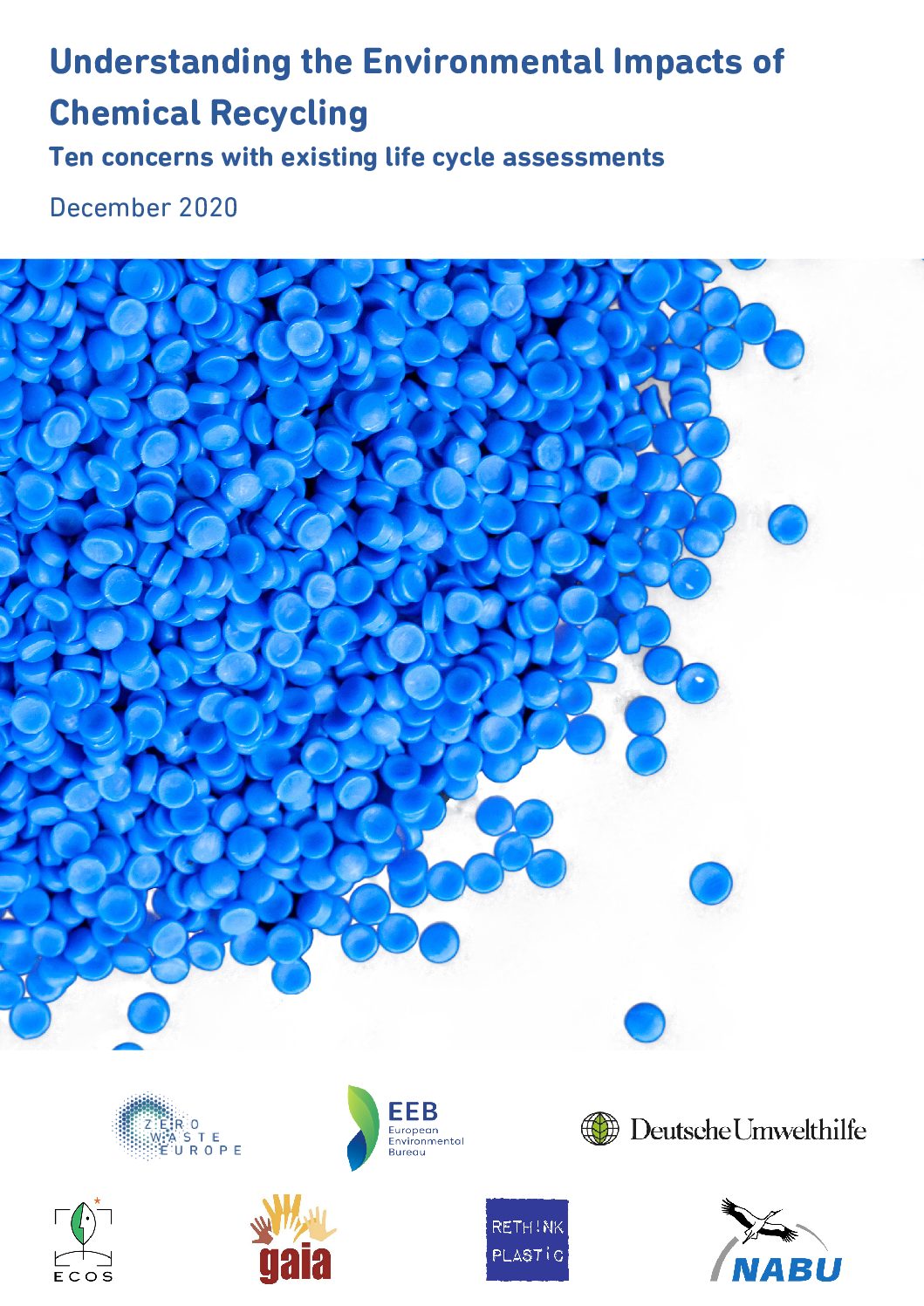
This joint paper presents key findings from a review of some of the most commonly cited chemical recycling and recovery LCAs, which reveal major flaws and weaknesses regarding scientific rigour, data quality, calculation methods, and interpretations of the results.
Available in English
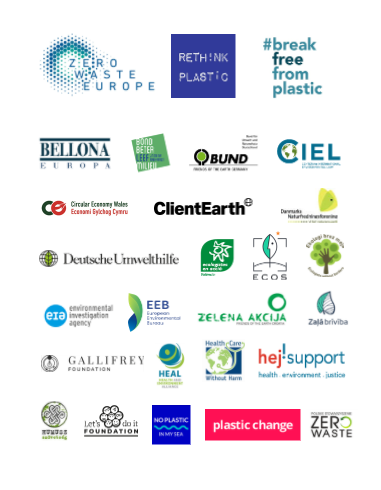
Together with other 44 European NGOs we wrote a letter to the European Directorate-General for the Environment to request a clarification on the role of different technologies marketed as ‘chemical recycling’ in the EU waste hierarchy.
Available in English

















